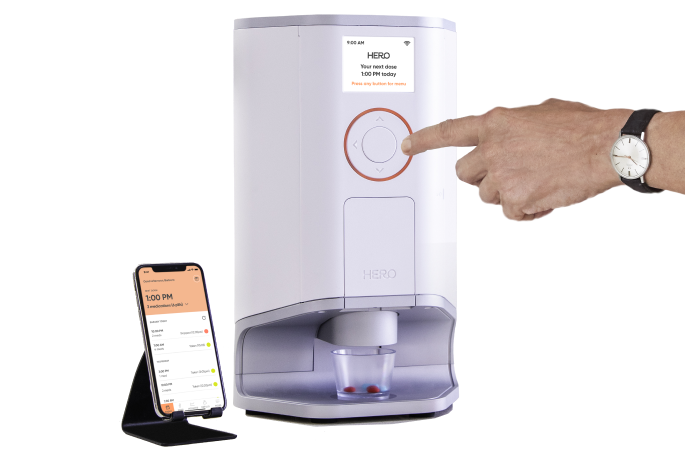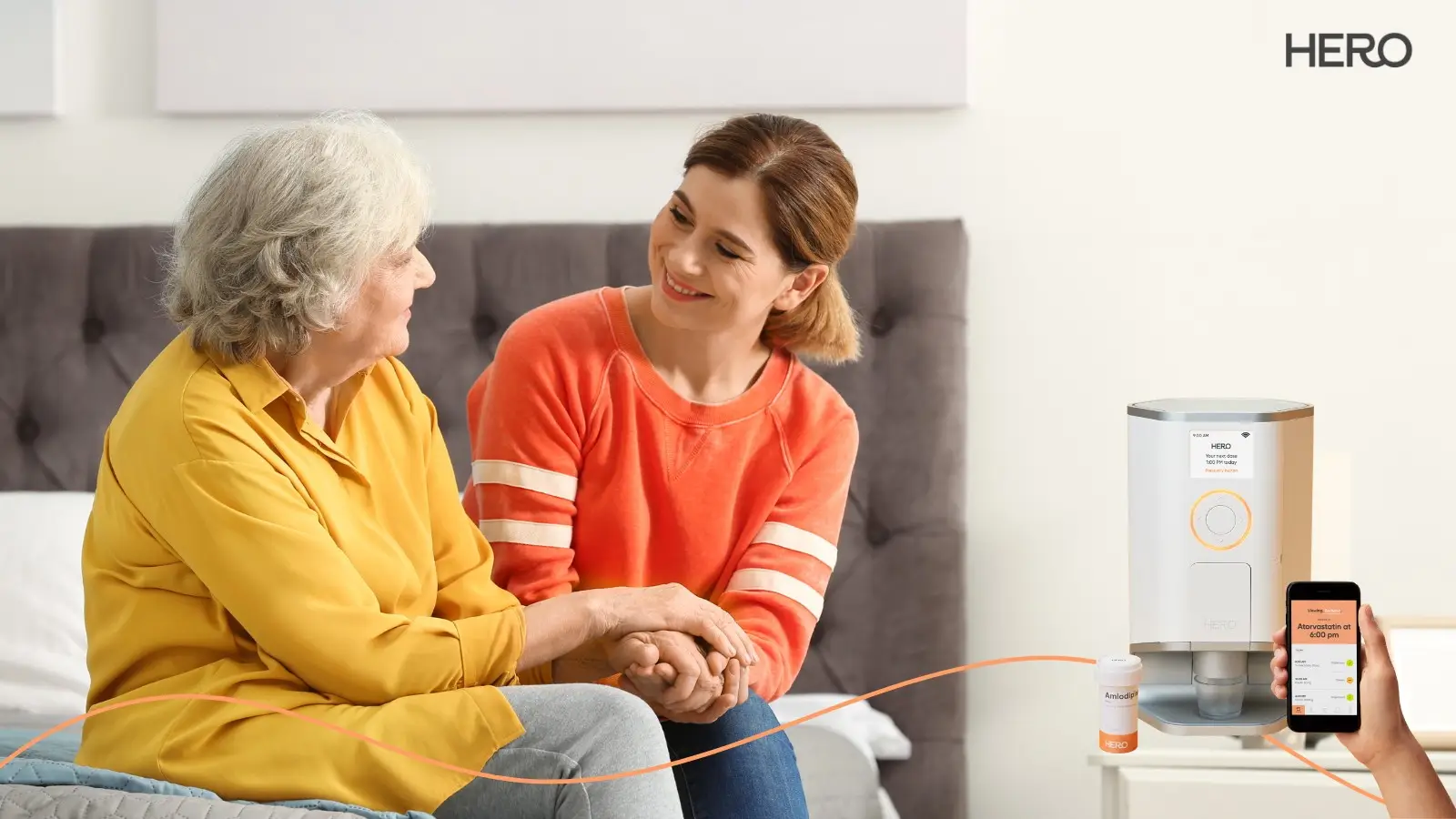Spark a Wellness Chain Reaction: 10 Tiny Habits for Better Health

True wellness isn't about a massive, one-time effort. It's about a profound, personal journey powered by small, consistent habits that create a powerful feedback loop for your health. Let's explore how a series of small wins can build lasting momentum.
The Power of Momentum
A wellness chain reaction is the simple but powerful idea that one good habit makes the next one easier. When you get enough quality sleep, you have more energy for a morning walk. When you move your body, you’re more motivated to make a healthy food choice. Each small win builds on the last, creating a cycle of growth and progress.
This isn't about perfection. It's about progress. For some, it’s about moving away from feeling unhealthy and regaining a sense of control. For others, it’s about stacking wins for health optimization and achieving a new level of well-being. The principle is the same: small, consistent actions are the fuel for positive change.
Building Momentum: Tiny Habits for Your Wellness Journey
Ready to build some positive momentum? Here are 10 small but mighty daily habits that can lead to bigger wins for your health.
1. Anchor Your Meds & Supplements to a Daily Cue
Whether it's a prescription or a daily supplement, try anchoring it to a part of your routine you never skip, like your morning coffee or brushing your teeth before bed. This simple trick creates a mental link, making it one less thing you have to actively remember. It’s a gentle way to build a routine that soon becomes second nature. For extra peace of mind, you can set a phone alarm as a friendly backup reminder.
2. Give Yourself a “Movement Minimum”
No gym? No problem. The goal here is consistency, not intensity. Start with just 10 minutes of movement you enjoy: a walk around the block, a few flights of stairs, or even just dancing in your kitchen.
We know that the recommended 150 minutes of moderate-intensity activity per week, plus two days of strength and balance exercises, can sound like a lot.1 But it doesn't have to be done all at once. The key is to break your activity into smaller, more manageable chunks of time throughout the week.2
3. Guard Your Sleep Like Medicine
Sleep isn’t a luxury, it's essential for your optimal health. Adults should aim for seven or more hours of sleep each night, as consistently falling short is linked to a higher risk of health issues like hypertension and diabetes.3
To get the restorative rest you need, try creating a simple wind-down routine and a regular lights-out time. This makes it easier for your body and mind to prepare for a good night's rest.
4. Sip Smarter, Not Just More
The old "eight glasses a day" rule is more of a myth than a mandate. In reality, your hydration needs are influenced by a lot of factors, including your activity level, health, and metabolism. Among other benefits, drinking enough water helps improve blood flow and aids digestion.
Instead of forcing water down, try sipping regularly throughout the day. A simple way to know if you're on track is to pay attention to your body's signals, such as a dry mouth or fatigue.4 If you notice these, it's likely time for more fluids.
5. Walk for 10 Minutes After Meals
A short, easy walk for five or ten minutes after a meal can lower your blood sugar.5 This simple habit can also aid digestion and adds up over the day.
This simple habit is especially beneficial, as regular walking can help heart health, reduce stress, fight food cravings, and boost self-esteem,5 making it an easy and accessible way to reach your weekly movement goals.
6. Create a Safe, Well-Lit “Meds Station”
Where and how you keep your medications matters. Avoid the steamy, fluctuating environment of a bathroom cabinet and choose a cool, dry, and well-lit spot. When it’s time for a dose, make sure the area is well-lit and put on your eyeglasses if you wear them.6 For more on this, check out our guide on how to organize your pill bottles.
7. Make Your Pharmacist a Key Member of Your Team
Your pharmacist is a valuable resource and a professional safety net. They are experts at interpreting information and can help you get the maximum benefit from your medications with the least amount of risk.7 Talk to your pharmacist about:
- Your full medication list, including all prescription medications, over-the-counter products, vitamins, and supplements.
- Potential interactions between drugs or with food.
- Confusing information you've heard from others or online.
- General questions, like how to deal with allergic reactions or if a large pill can be crushed.7
8. Pack an "On-the-Go" Kit for Busy Days
Life happens, and errands or appointments can easily disrupt your routine. Prevent missed doses by keeping a small pill case with a day's worth of your meds and supplements, along with your full medication list, in your purse or bag. Try making it a habit to restock your “on-the-go” kit each week so it's always ready to go. This simple prep makes staying on track, even on busy days, almost effortless.
9. Get a Little Morning Sunlight
Sunlight does more than just brighten your day, it provides vitamin D, boosts your mood, and may even help you sleep better. Sunlight exposure has been shown to contribute to overall well-being, improving sleep quality, energy levels, and cognitive function. It can also help reduce stress and anxiety. Aim for 10 to 30 minutes of outdoor time when possible, and don’t forget your sun safety!8
10. Reclaim 10 Minutes for a Weekly "System Check"
Set aside 10 minutes for a quiet weekly ritual for your peace of mind. This is your time to slow down, breathe easy, and take stock of your health routine for the week ahead. You can check on prescription refills and make sure your "on-the-go" kit is ready. If you use a traditional pill organizer, this is a great time to mindfully sort your doses. For those with an automatic pill dispenser, this ritual becomes an even simpler moment to confirm you feel prepared and in control. This small act of self-care allows you to enter the new week feeling centered and free from the worry of last-minute scrambles.
Make consistency effortless: tools & cues
- Simple Cues & Habits: Many people build a routine by pairing their medications with daily events like meals or bedtime, or by using tools like charts, calendars, and weekly pill boxes.9
- Reminders that stick: Simple phone alarms, smartwatch nudges, and even sticky notes can be effective. Dedicated medication reminder apps are also a popular choice to help you remember when and how to take your medications each day.9
- Smart Technology: Smart medication and pill dispensers are designed to provide reminders at the correct time and help avoid errors with dosage or medication type. Some of these solutions even include mobile applications that allow caregivers and doctors to monitor your medication adherence and manage the smart dispensers remotely.10
Complex med schedule? We solved it.
Hero’s smart dispenser reminds you to take your meds and dispenses the right dose, at the right time.

Hero: Your Foundation for Effortless Consistency
Your wellness chain reaction begins with one critical, consistent action: taking your medication and supplements at the correct time. The most effective way to strengthen that link is to automate it.
Hero is an end-to-end medication management service that includes our award-winning smart dispenser, a connected app, and 24/7 live support. It’s designed to make this foundational habit feel effortless, helping automate your routine so you can build consistency without the stress of remembering every dose. This level of consistency is why Hero members achieve a 90%+ median adherence rate and stay with the service for 55 months on average.
It provides the reliable foundation needed to build a strong wellness chain. Ultimately, Hero gives you "one less thing to worry about," freeing up your mental energy to focus on the next link in your wellness chain.
The Challenge of Sticking With It: Why Good Habits Break
If it were as easy as just reading a list, we’d all be paragons of health. The reality is that maintaining consistent health routines is hard. Life gets busy, stress levels rise, and we’re faced with decision fatigue. The mental load of tracking everything - pills, appointments, workouts, meals, can become exhausting.
When you’re already feeling overwhelmed, even a small hiccup can feel like a total failure. Forgetting one dose or skipping one walk can make you feel like the entire chain is broken, making it tempting to just give up. This feeling is universal, but it doesn't have to be the end of the story.
The secret is to reframe the goal from "perfection" to "progress" and to build a new chain of small, positive wins.
Your 7-Day Jumpstart
The best part? You don't have to do it all at once. Let's start with one small, simple change today. Here is a simple, 7-day plan to get your chain reaction started.
- Day 1: Make or print a complete list of your medications and supplements to share with your healthcare team. Set a distinct alarm on your phone for each and every dose.
- Day 2: Dedicate today to medication safety. If you use a pill organizer, take a moment to fill it for the week. Then, do a quick label check on your over-the-counter (OTC) meds. Confirm there are no interaction warnings, and remember: when in doubt, call your pharmacist.
- Day 3: Add a 10-minute walk to your day. Put it on your calendar like an important appointment and stick to it.
- Day 4: Choose a consistent bedtime that allows for at least seven hours of sleep and stick to it. Start your wind-down routine 30 minutes prior.
- Day 5: Set a hydration cue. This could be a glass of water with each meal or a water bottle on your desk that you aim to finish by lunchtime. As we discussed, steady sips throughout the day are key.
- Day 6: Take a 10-to-30-minute morning sunlight break. As you read earlier, sunlight can be a wonderful mood booster, so take a few moments to enjoy the outdoors.
- Day 7: Finally, do your 10-minute "system check" to prepare for the week ahead.
Conclusion: Start Your Chain Reaction Today
True, lasting wellness isn't born from a single moment of inspiration, but from the quiet power of your daily habits. By starting small and focusing on consistency, you can create a powerful chain reaction that builds toward the vibrant well-being you deserve.
You don't need to do everything at once. Just choose one small spark. Start today, and watch how far your momentum can take you.
References:
1.CDC - What Counts as Physical Activity for Adults https://www.cdc.gov/physical-activity-basics/adding-adults/what-counts.html
2.CDC - Adult Activity: An Overview https://www.cdc.gov/physical-activity-basics/guidelines/adults.html
3.Recommended Amount of Sleep for a Healthy Adult: A Joint Consensus Statement of the American Academy of Sleep Medicine and Sleep Research Society https://pmc.ncbi.nlm.nih.gov/articles/PMC4434546/
4.Cleveland Clinic - How Much Water You Should Drink Every Day https://health.clevelandclinic.org/how-much-water-do-you-need-daily
5.Cleveland Clinic - The Health Benefits of Walking https://health.clevelandclinic.org/benefits-of-walking
6.CDC - Medication Safety and Your Health https://www.cdc.gov/medication-safety/about/index.html
7.FDA - FDA Pharmacists Help You Use Medicines Safely https://www.fda.gov/consumers/consumer-updates/fda-pharmacists-help-you-use-medicines-safely
8.Cleveland Clinic - The Health Benefits of Sunshine (and How Much You Need Per Day) https://health.clevelandclinic.org/how-much-sunshine-you-need-daily
9.National Institute on Aging - Taking Medicines Safely as You Age https://www.nia.nih.gov/health/medicines-and-medication-management/taking-medicines-safely-you-age
10.U.S. National Library of Medicine - A Systematic Review on Pill and Medication Dispensers from a Human-Centered Perspective https://pmc.ncbi.nlm.nih.gov/articles/PMC11052969/
The contents of the above article are for informational and educational purposes only. The article is not intended to be a substitute for professional medical advice, diagnosis, or treatment. Always seek the advice of your physician or other qualified clinician with any questions you may have regarding a medical condition or its treatment and do not disregard professional medical advice or delay seeking it because of information published by us. Hero is indicated for medication dispensing for general use and not for patients with any specific disease or condition. Any reference to specific conditions are for informational purposes only and are not indications for use of the device.



